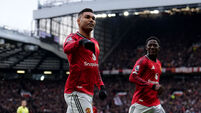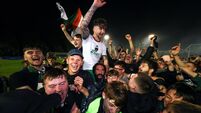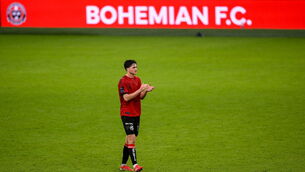Street football the saving grace for homeless people
After almost three hours on the pitch, he walks off smiling, noting with satisfaction that it is he, not they, who calls an end to a practice session that has already gone over time.
The players fall in slowly behind him, feigning annoyance at his instructions to pick up the pile of coloured bibs on the sideline and the markers dotting the pitch.














